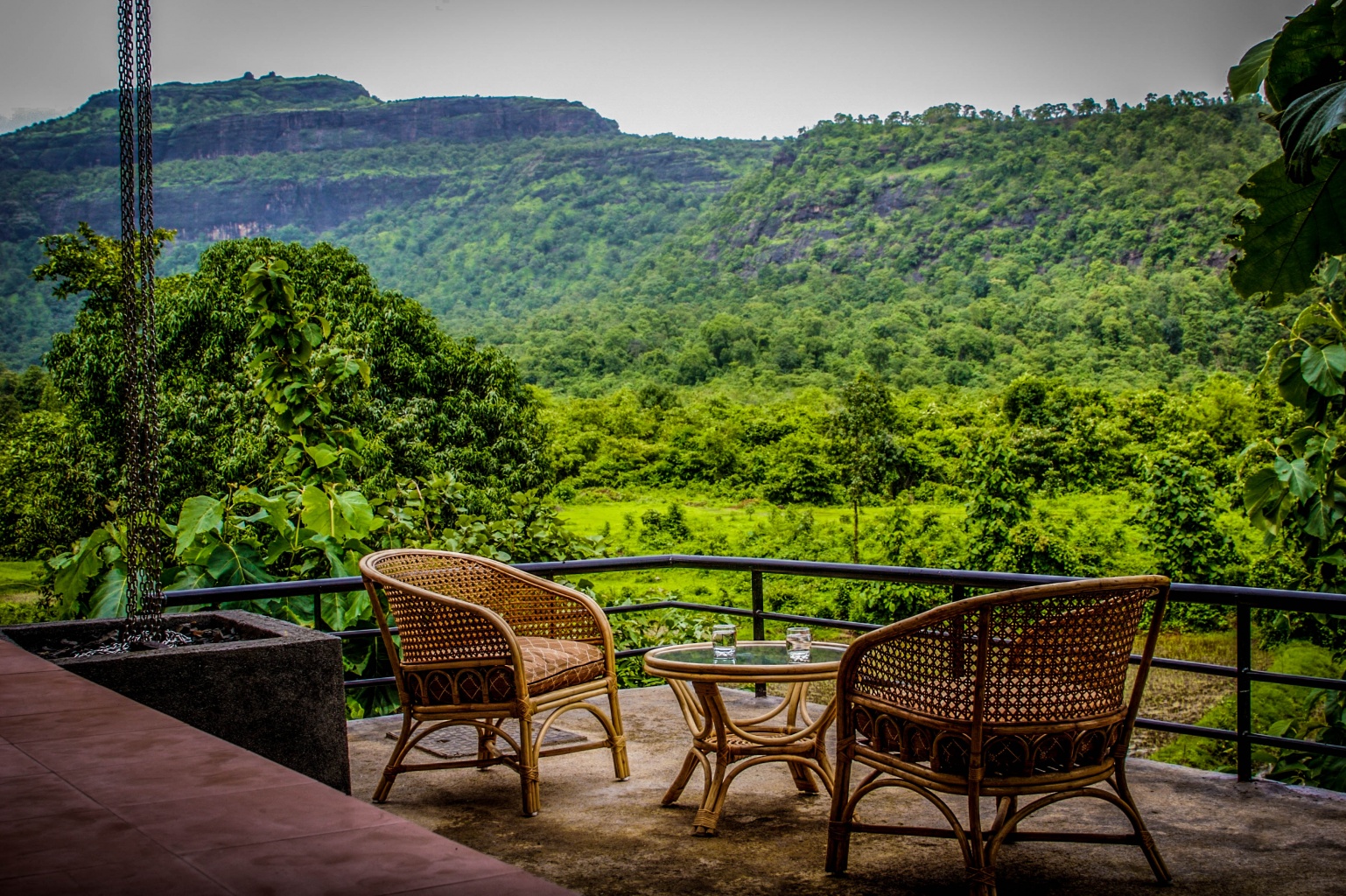Govardhan Ecovillage project intended to change the lifestyle of Indian villages with the help of ecotourism
A B.Tech graduate from IIT-Bombay, Gauranga Das currently serves as the Director of Govardhan Ecovillage for Strategy, Collaboration and Communication. He has implemented various sustainable green initiatives in Govardhan Ecovillage (GEV). Gauranga Das also led India to win the United Nations Award for Excellence and Innovation in Sustainable Tourism by presenting GEV’s case study of “Ecotourism as a catalyst for Rural Development”. He is also the Chairman of Bhaktivedanta Vidyapitha Research centre, a centre affiliated with Mumbai University for awarding PhD in Indian Philosophy and Vaishnavism. An inspirational speaker known for his expertise in presenting Vedic Knowledge in a contemporary and enticing way, he is making spirituality accessible to all. He is involved in the leadership and organizational development of ISKCON organization in various capacities. An excellent chef, he along with his team, enabled setting up of self-sufficient, low cost, high quality of up to 5000 square feet area Mega Kitchens during annual pilgrimages to holy places. This was featured on National Geographic Channel as one of India’s Mega Kitchens that can serve more than 10,000 people at times. Personally, he has cooked more than 3 million plates of sanctified vegetarian meals called ‘Prasadams’ in the 2007-2019 period, in the temple and pilgrimage kitchen.
Gauranga Das speaks to EcoTourism Expert about Govardhan Ecovillage initiatives; and its aim to grow eco-tourism to bring about holistic lifestyle changes in Indian villages.
- What’s your opinion about the way global ecotourism operates at present? It seems the views of people are polarized on the sustainability aspect of ecotourism. What are the strategies for developing a good eco-tourism destination? Your thoughts…
- Global Eco-Tourism is nice to the extent it educates the visitors about the importance of conserving ecology and gives economic opportunities to the local communities. However, if in the course of Eco-Tourism, the visit of the tourists affect the site negatively either through the disposal of waste, the inability of tourists to understand and respect the cultural expectations and dress codes, pollution, increased traffic etc. then it destroys the purpose of the site itself.
At the GEV campus, we have set up various initiatives of sustainability as mentioned in the previous questions, which are full scale working Eco-models in the areas of food, water, energy, housing and waste, which are the 5 primary needs for a community. The visitors who come to Ecovillage are educated in alternative lifestyle of living in harmony with the environment by taking them on tours of these various initiatives at GEV itself. The overall process of coordinating the visit of tourists to GEV involve various services, which in turn generates job for the local community people.
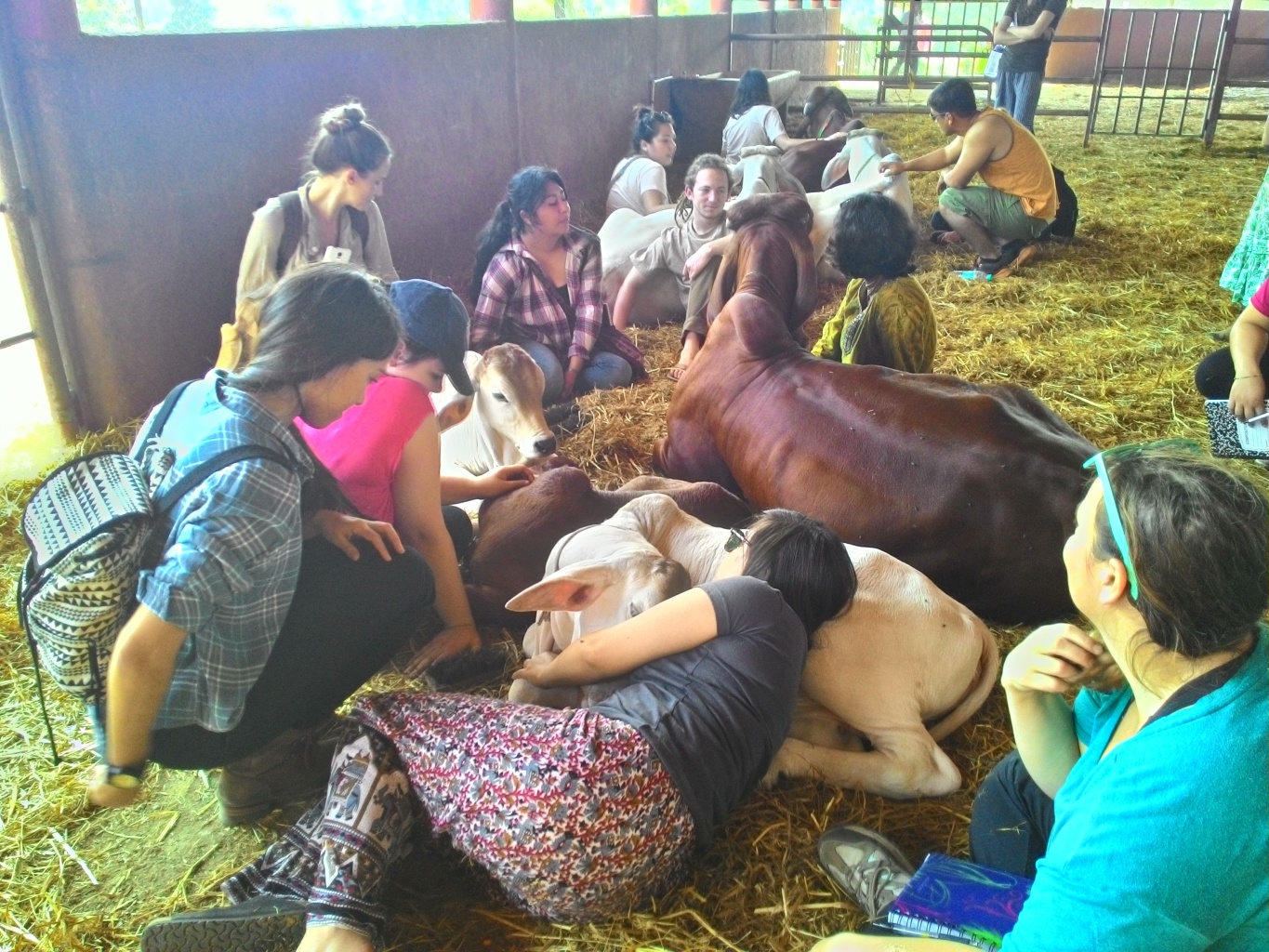
Ecotourism is defined as responsible travel to natural areas that conserves the environment, sustains the well-being of the local people, and involves interpretation and education. Eco-Tourism is a part of environmental conservation, and understanding what the needs of the people are who are local to the area so that you can help to improve their quality of life.
GEV is based on a hub and a spoke model, wherein some of its sustainability initiatives are being replicated in nearby villages so that the villagers learn to live a life, which is preserving the environment and also is financially sustainable. For that purpose, GEV has trained thousands of farmers in organic farming and water conservation in the villages.
In order to keep a balance between Eco-tourism and not disturbing the particular village environment, rather than inviting tourists to visit the villages randomly, demonstration plots of few villagers are identified in the villages, wherein the tourists can go and get full exposure about the green practices followed by the farmers. Also there are opportunities for villagers to exhibit their products of farming or women empowerment to the tourists in the GEV campus, which in turn generates income for them. Moreover, the profits which come to GEV out of Eco-tourism are routed back to develop the villages. In this way, GEV follows these practices to ensure the sustainability aspect of Eco-Tourism.
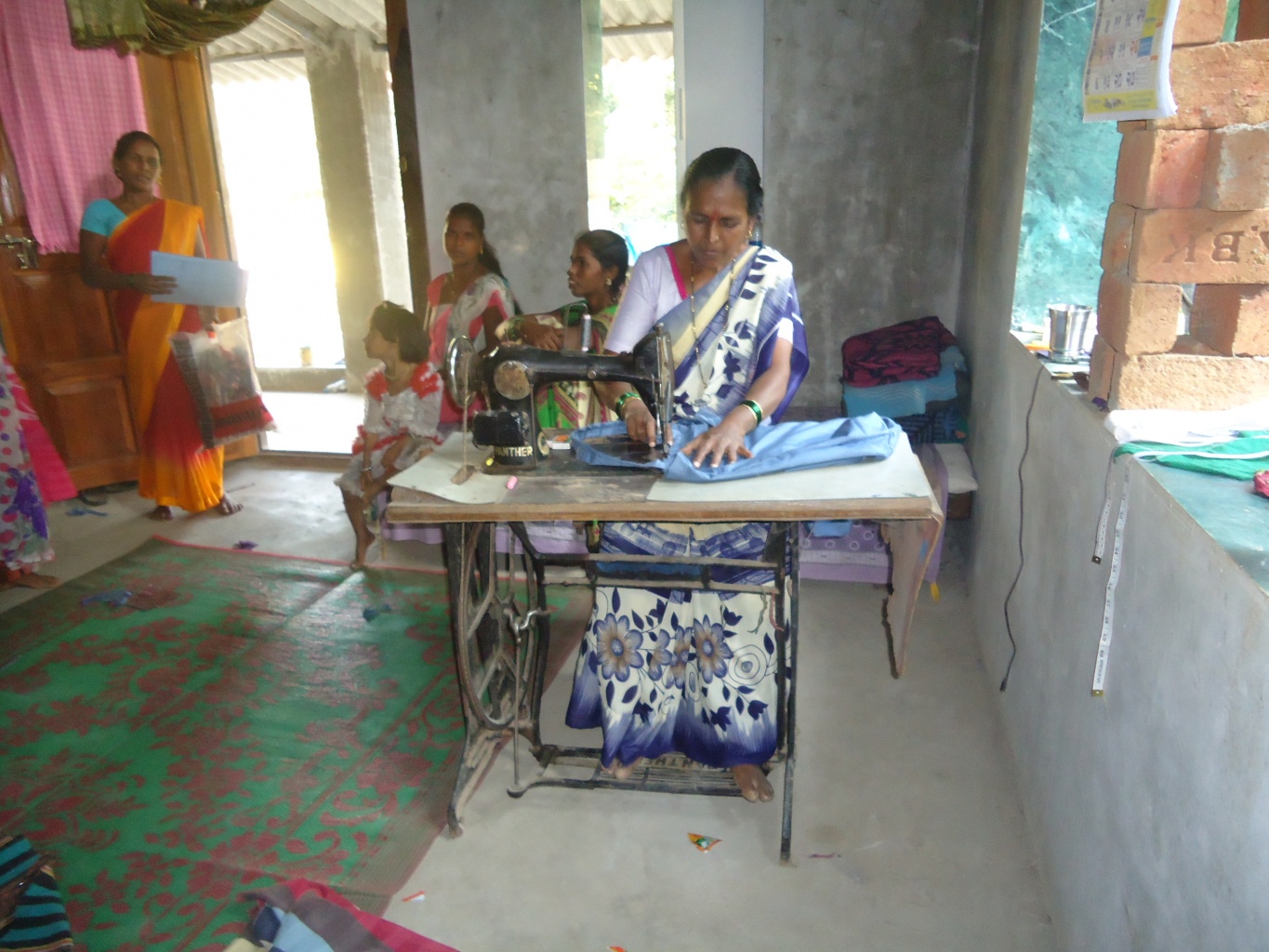
- For our readers across the globe to comprehend, can you tell us when, how and why was the ‘Govardhan Ecovillage’ conceptualized? And the reasons for selecting this place in Maharashtra – India to finally establish GEV, when there are multiple choices all over India?
-Govardhan Ecovillage began in the year 2003. The conception of GEV goes back in the year 1971, when Srila Prabhupada, the founder of International Society of Krishna Consciousness, gave the vision of establishing rural farm communities all over the world based on the principles of simple living, high thinking. Such communities should be established to showcase an example for the whole world of living in harmony with oneself, nature and the divine.
Taking this vision and inspiration, his student, Radhanath Swami came to Maharashtra, India in the year 1987 and since then was trying to establish such a model community. Hundreds of land were seen and finally, we got the land at Galtare village, which was then transformed into Govardhan Ecovillage.
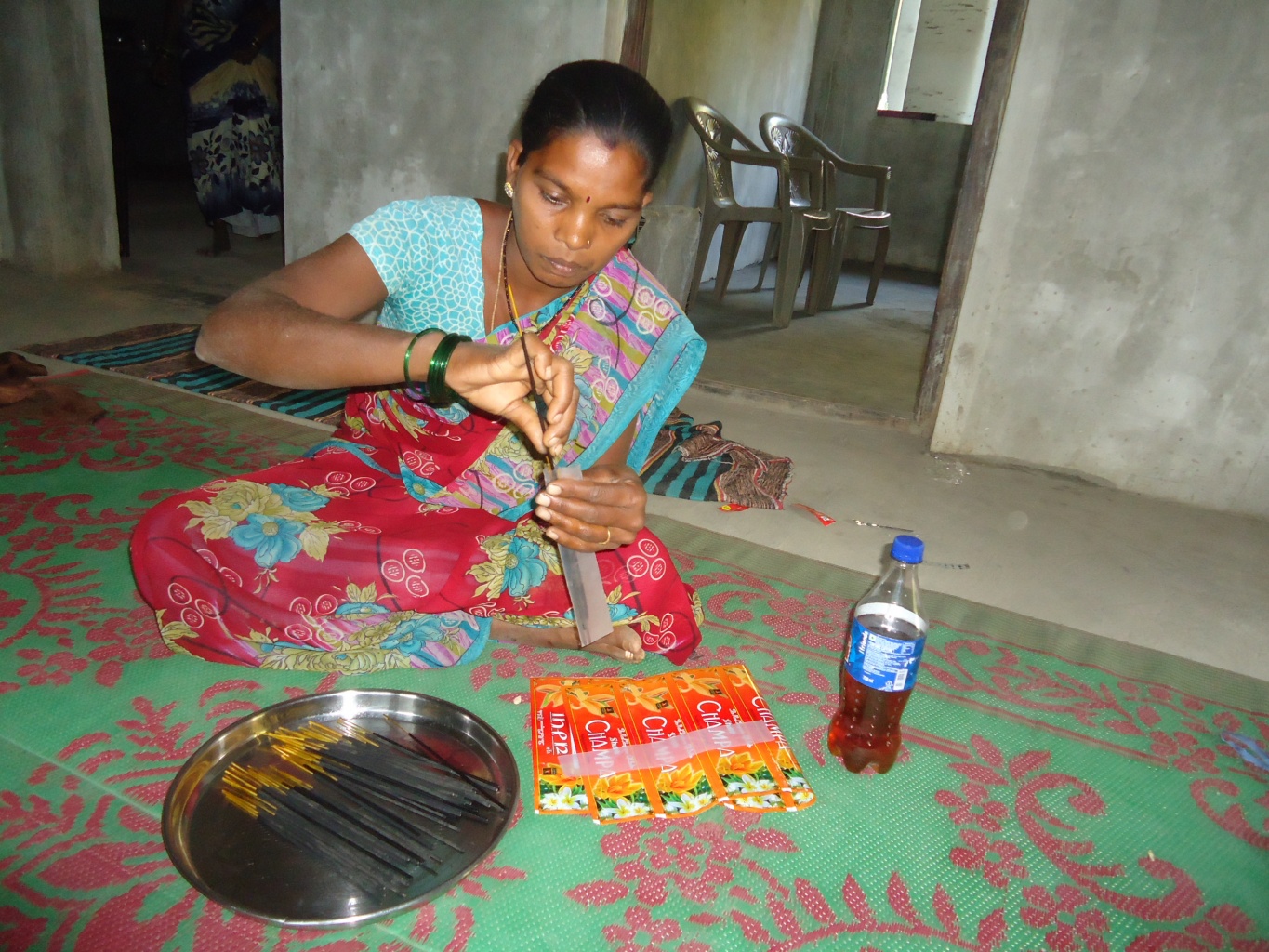
- In all these years, what actions has GEV taken to develop the role of ecotourism in sustainable development in poverty eradication and environmental protection? How successful were your initiatives to empower local communities? In what areas have they benefitted and improved their lifestyles?
-The Govardhan Ecovillage provides an integrated environmental, social, spiritual and cultural model for people to experience wellness and harmony with nature, others and one’s self along with comfortable facilities to stay and relax. Thus, people who come here also tour nearby villages populated by tribal people and contribute to their social development.
In short, GEV acts an innovative platform to bridge the urban-rural divide by attracting the powerful from India and abroad and inspiring them to support the powerless thus transforming the landscape of rural India. GEV has pioneered a modern form of responsible investment through its eco-tourism initiative that acts as a catalyst for Rural Development.
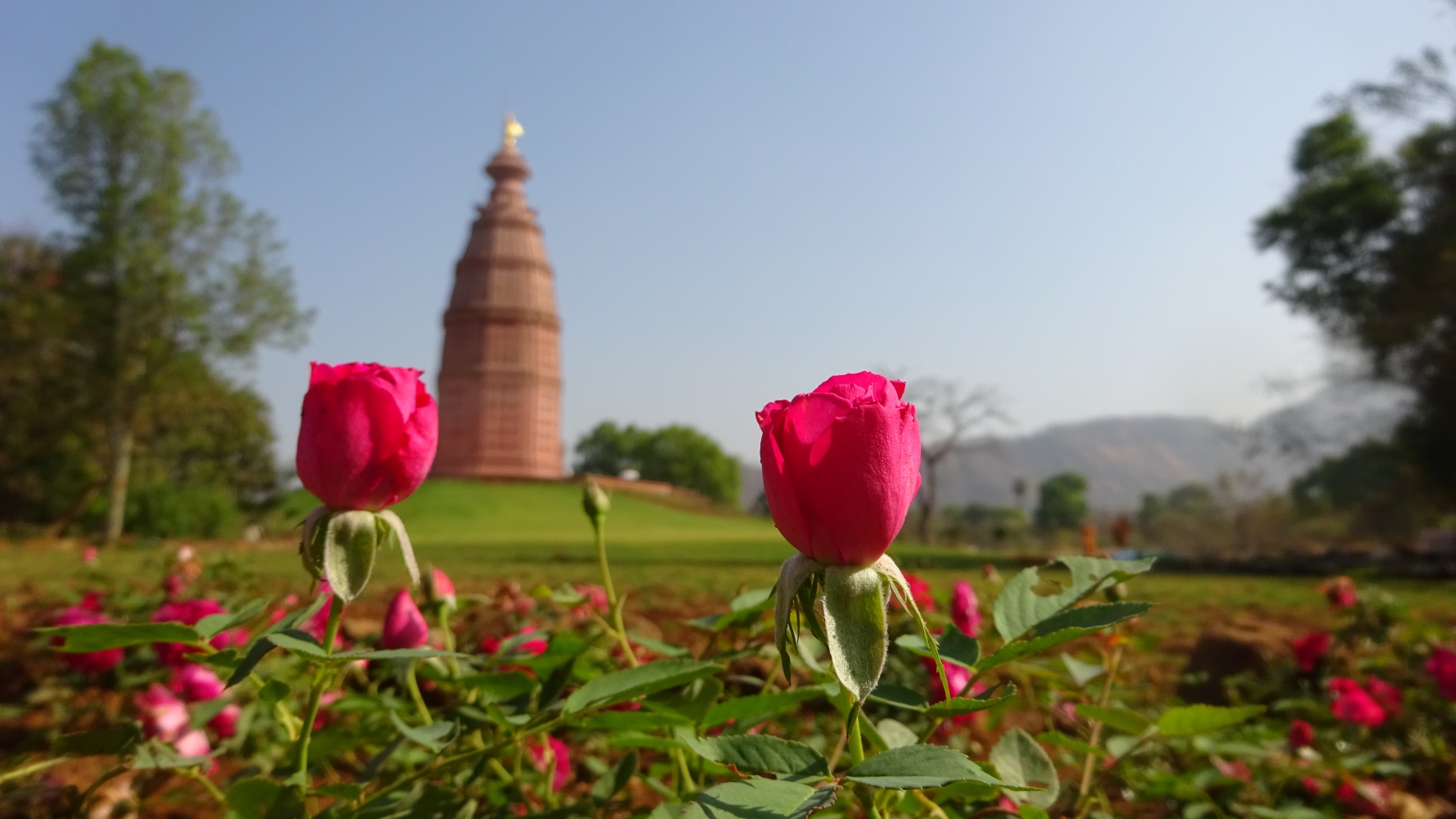
GEV has also accounted for the diversity of national realities and capacities and respecting national priorities and policies, brought together the private sector, civil society, the Government and other actors. GEV engaged in these partnerships (based on solidarity) while inspiring actions, and innovative financing to mobilize this creative approach and support the Rural Development Programme. Through its engagement in providing socio-economic services to the indigenous communities and its outreach programmes, GEV is influencing key players in protecting the environment, eradicating poverty, improving people’s health and thus achieving sustainable development.
The impact of all these initiatives is as follows:
- Annually more than 12000 students and 15000 visitors come to GEV to learn about the circular economy model.
- The rainwater harvesting pond in GEV conserves 10 million litres of rainwater annually and used it for recharge of ground aquifers and in irrigating the fields.
- The Soil Biotechnology plant conserves 1.2 lakh litres of water every day by recycling sewage water preventing 97.16 tonnes of carbon dioxide emissions annually.
- The Green Buildings at Govardhan Ecovillage have used more than 2.5 lakhs CSEB bricks thus replacing red bricks.
- 30 cubic meter Biogas plant processed food waste and cow dung to create biogas thus saving 600 LPG cylinders per year.
- GEV organizes annual conferences (http://nexusconference.in/) and also presented its initiatives in conferences including FICCI’s Indian Life Cycle Assessment & Management, CII’s Green Building Congress, International Conference on Agricultural, Ecological and Medical Sciences (AEMS), International Conference on Renewable Energy and Sustainable Development, National water Conference, CII Waste Management Summit etc.
- More than 1100 families from 30 villages around GEV have adopted the Wadi Organic farming program and there is an increase of around 30-35% in their annual income.
- More than 2000 women are now part of 200 self-help groups in 30 villages and their annual income is increased by 45 – 50% by making earnings out of their skills.
- The Bhaktivedanta Kaushal Vikas Kendra (BKVK), the skill development institute of Govardhan Ecovillage is training over 25 tribal youths in over 72 skills and making them ready for jobs or to be entrepreneurs.
- More than 850 tribal people got benefit out of lift irrigation initiatives, more than 5500 got benefit from drinking water initiatives and more than 1050 from customized irrigation.
- More than 30,000 free school lunches served every day to students coming from these Villages.
- Mobile clinic and ambulance cover 25 villages and has organized more than 1800 health camps, treated more than 88,500 patients and has performed more than 1800 surgeries so far.
GEV has received over 32 awards in the last 5 years for all these initiatives including being accredited to the United Nations Environment Assembly and receiving the United Nations award for its initiative of “Eco-Tourism as a catalyst for Rural Development” from UNWTO.
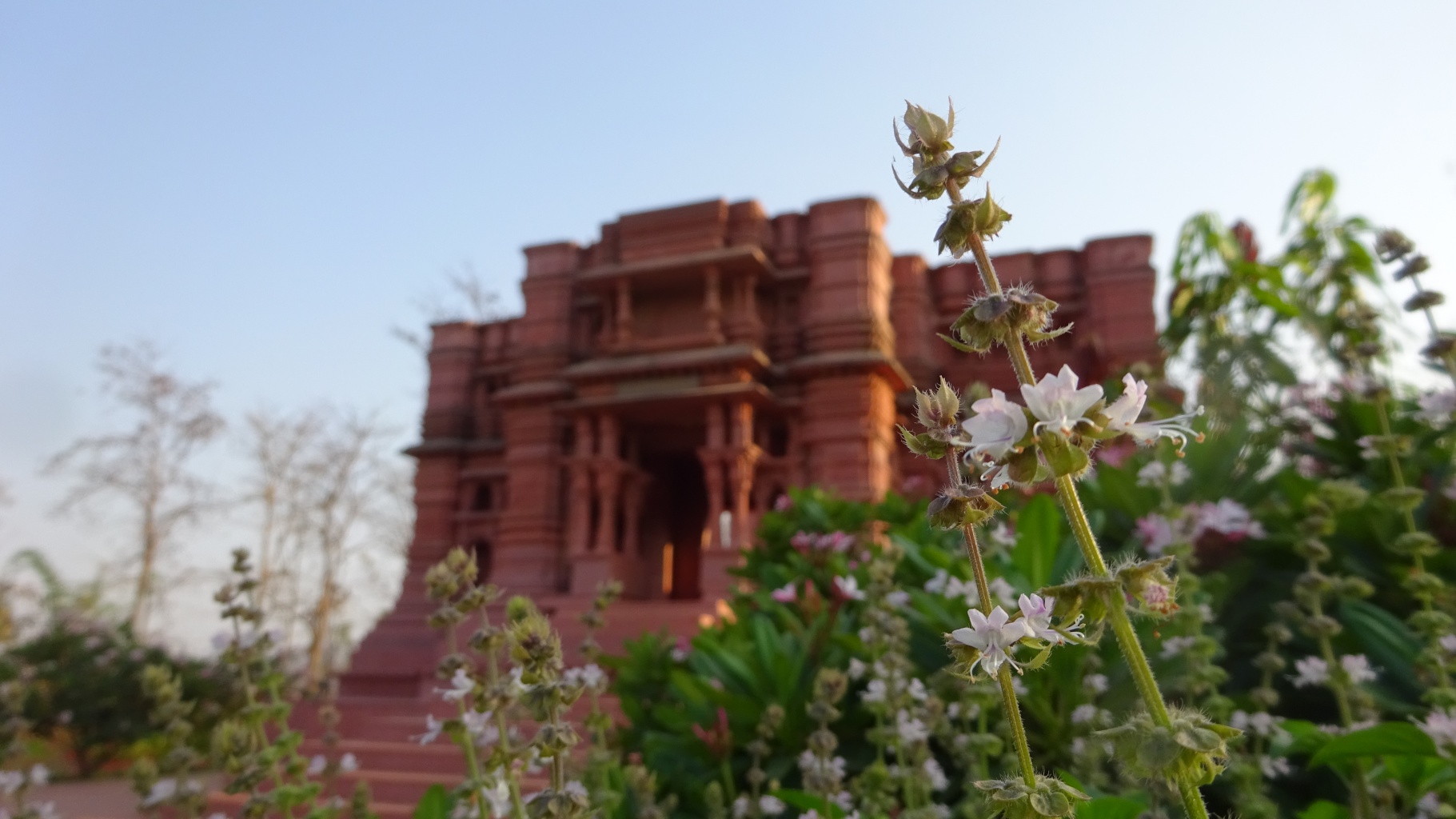
- Does GEV get Indian Government’s support for your services to the local communities? Are GEV’s initiatives funded by any domestic or international organizations? Any new initiatives in the offing, to be introduced at GEV going forward?
- GEV takes help of the Indian Government for service to the local communities by educating about Government’s various schemes of getting loans, opening bank accounts, etc. to them and encouraging them to enrol for the same.
GEV’s initiatives are funded by CSR funding of various corporates like Bajaj Electricals, Mafatlal, Piramal industries, Apar Industries etc.
GEV is in the process of making villages, with which it is working, plastic-free. GEV has collaborated with other organizations, which can help us in collection, segregation and processing of plastics in the villages. We have done an initial survey of a village to understand the need and are waiting for funding to take this initiative ahead.
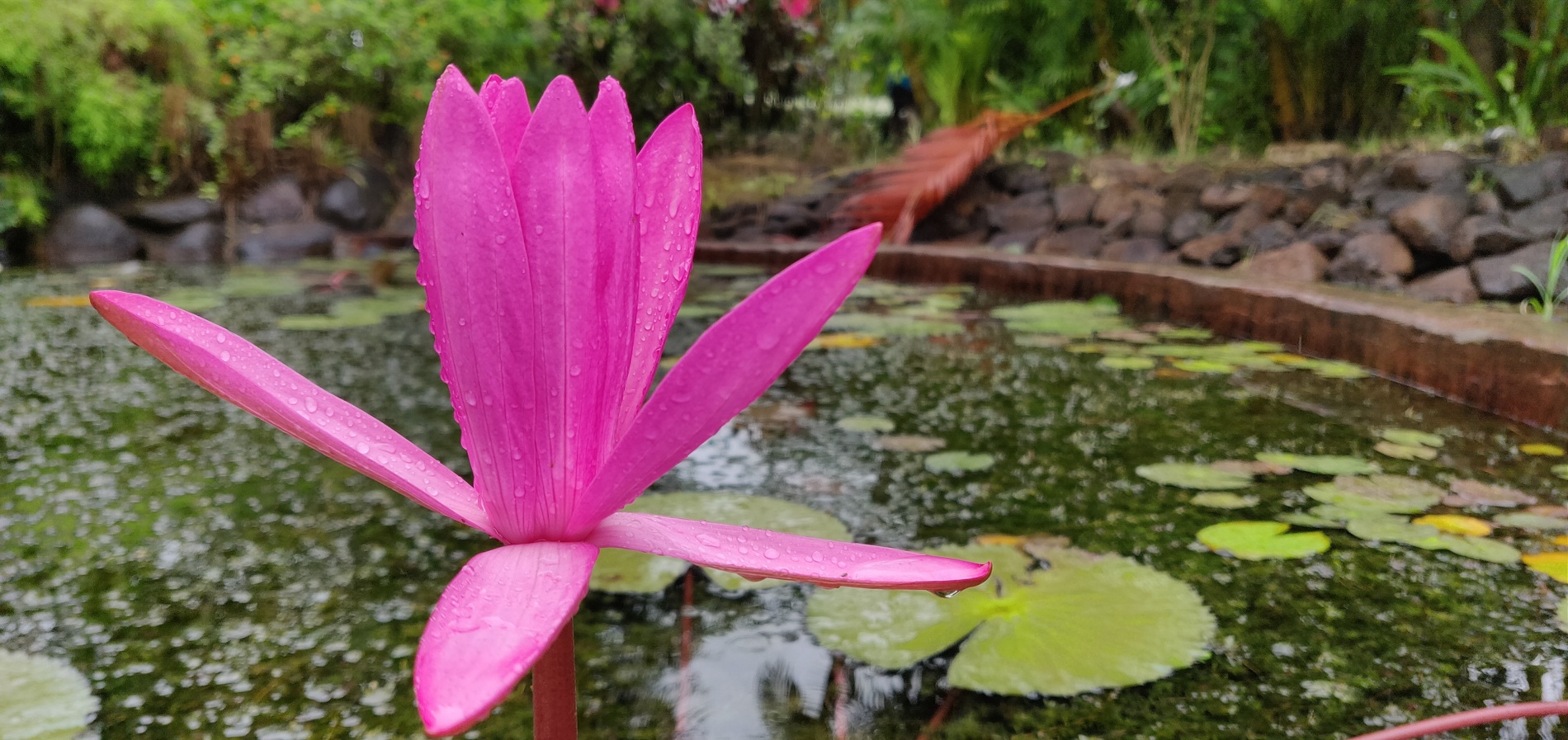
- What are the activities offered for the tourists in general? Are there options to participate in voluntourism activities at GEV? On average, how many tourists visit GEV annually?
The various activities offered to the visitors at GEV are as follows. We have Yoga School: GEV in-house a Govardhan School of Yoga (GSY), certified by Yoga Alliance, which offers 28 days certified Yoga Teacher’s Training course (YTTC), along with various other Certified Yoga courses and Customized Yoga retreats like women’s wellness course, kids yoga teachers training courses etc. As of today, 18 batches consisting of over 350 students including 250 foreign nationals from over 25 countries have taken the YTTC from GSY.
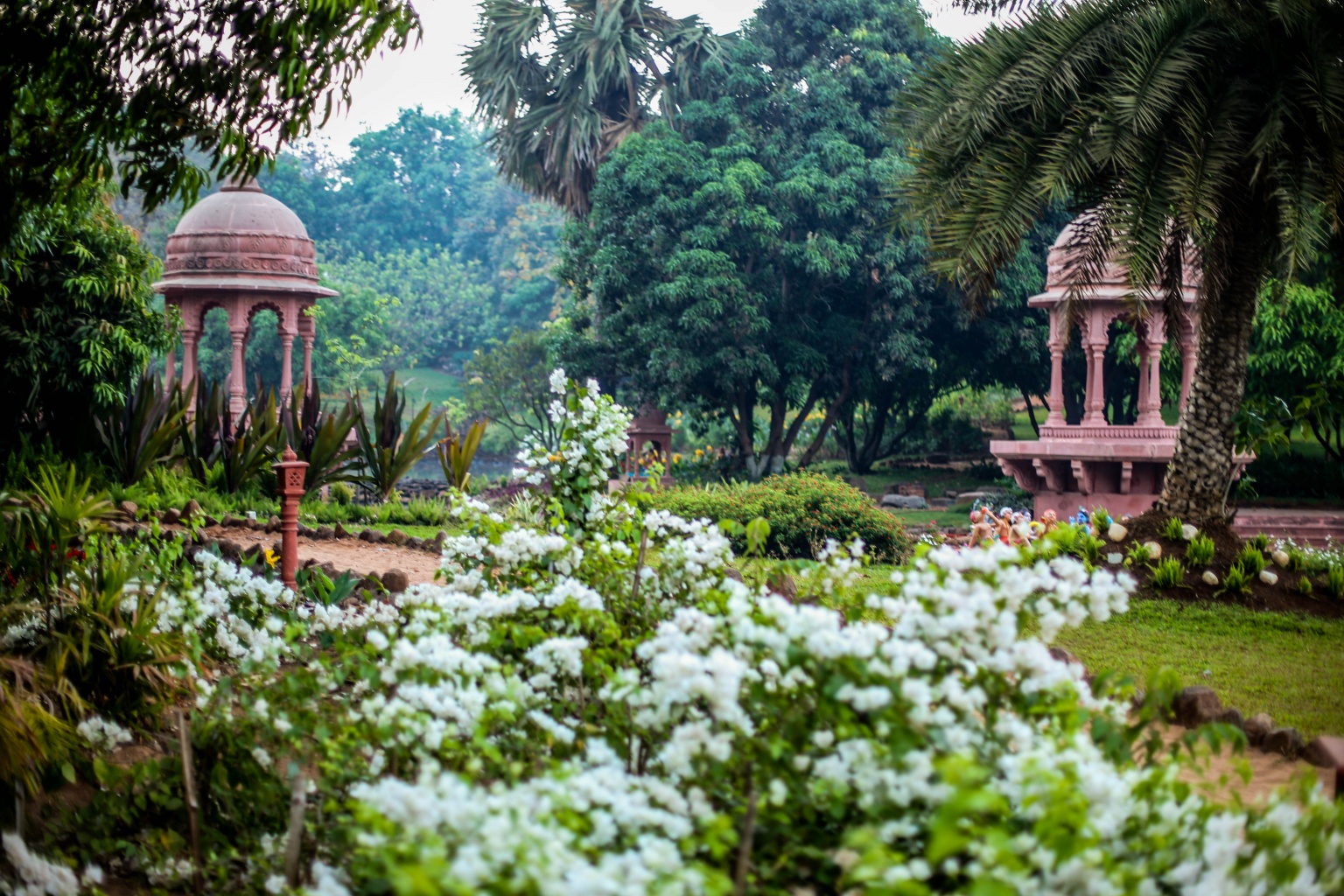
GEV also houses a Govardhan school of Ayurveda offering authentic Kerala Ayurvedic treatments for chronic illnesses along with various wellness packages including Anti-stress, Detoxification and Rejuvenation.
The Govardhan School of Sustainability at GEV offers various residential courses on sustainability, which not only involve theories of sustainability but also hands-on activities, workshops, outdoor classes, cultural activities, art and spirituality. GSOS is setting partnerships with several international universities, promoting increased cultural and academic exchange. Some of these universities include Princeton University, Bronx Community College, Vassar College, University of Southern California, Indiana University, Utah University and Notre Dame University. GSOS offers various programs to these education institutions where students from universities come and learn about the principles of sustainability and circular economy and also experience them in action at the GEV.
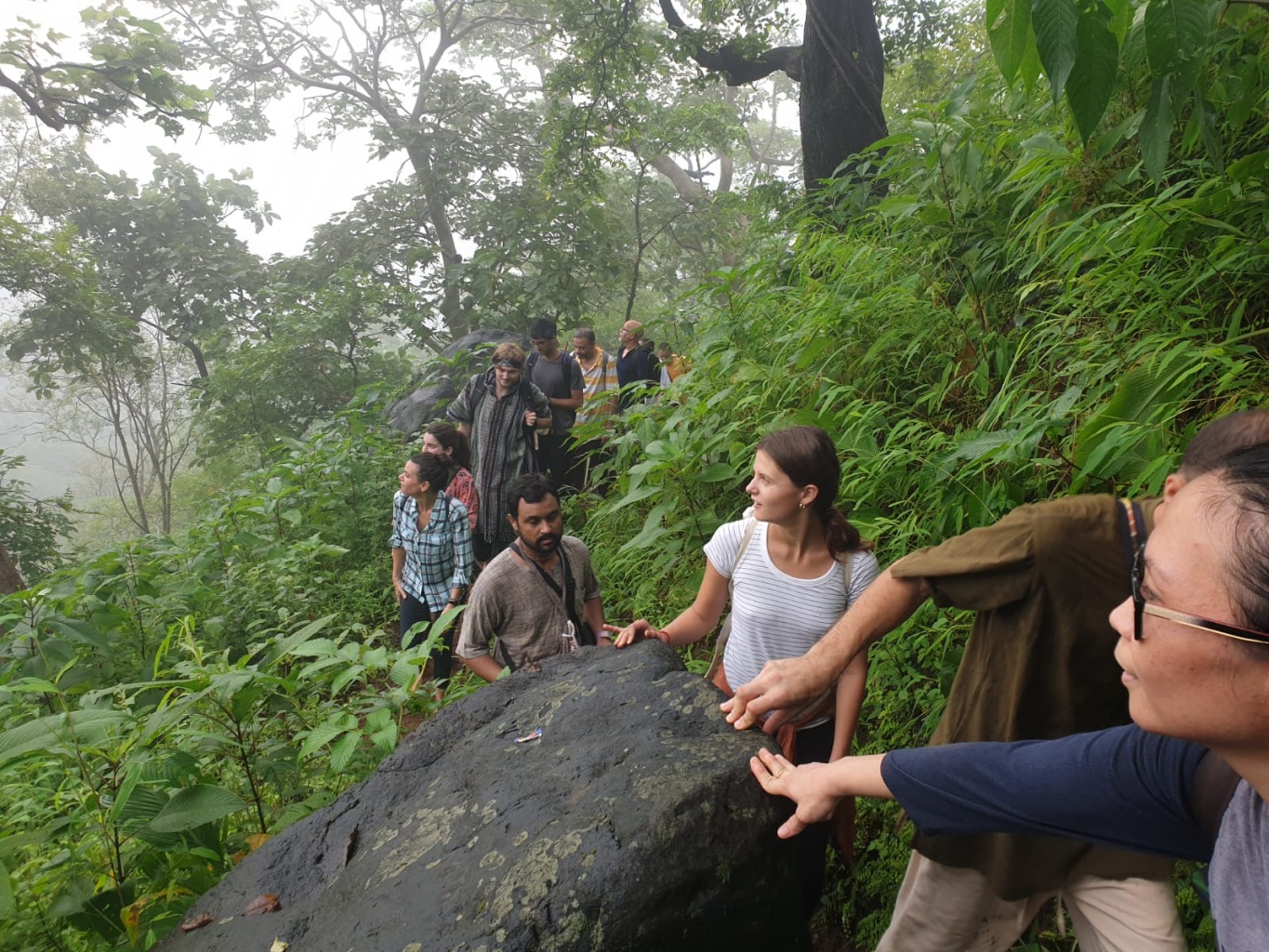
We have educational tours to expose visitors to different ecological initiatives like floriculture, Permaculture, seed banks, organic farming practices, animal shelter etc. During these educational tours, visitors also get to engage in hands-on activities like pottery, sample CSEB preparation, organic farming, tribal painting, basket weaving, making cow dung patties, serving cows etc.
As far as concerned for Rural Development Activities, GEV is working with over 50 villages in nearby areas and helping over 1100+ farmers in organic farming, over 7400 people through various water resource initiatives including lift irrigation, customized irrigation and drinking water initiatives, over 2000 women through women empowerment initiatives and village children through various rural education initiatives. Visitors who come to Ecovillage are shown all these activities in classrooms and are often taken to a demonstration plot as well to show these things in action.
I'd like to pay your attention to Vrindavan Bio-diversity Park, that we have. Taking inspiration from the sublime and symbiotic biodiversity of Vrindavan, GEV has set up a 25 acres Vrindavan Biodiversity Park that is landscaped on the theme of the 12 forests of Vraja, boasting replicas of the original temples of Vrindavan, Govardhan hill and Yamuna river flowing through. GEV recently built the full-size replica of the original Radha Madan Mohan Temple, a 75-foot high temple, which was originally inaugurated in 1580 on a 50 feet hill called Dvadasaditya Tila, next to the Yamuna in the city of Vrindavan. Sitting in the lap of Mother Nature, being surrounded by mountains on all 4 sides and with the Vaitarna River flowing nearby, Govardhan Ecovillage has an ideal setting to experience the sweetness of Bhakti Yoga along with the blossom of Nature.
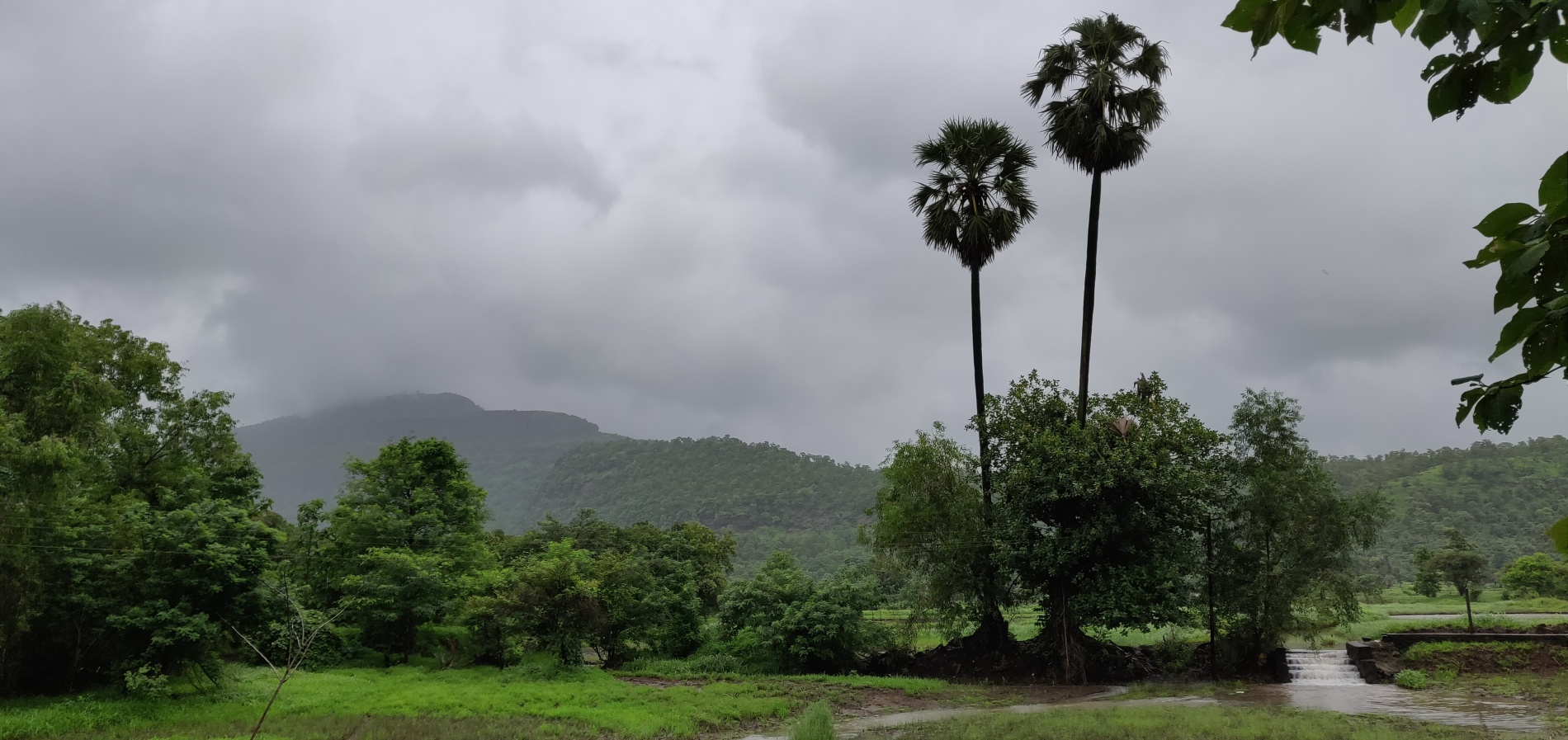
Besides this GEV is nested in the Sahyadri mountain ranges and visitors get an opportunity to do trekking depending on their schedule. There are also various other facilities like a library, swimming pool etc.
Over 20,000 visitors come to Govardhan Ecovillage on an annual basis.





